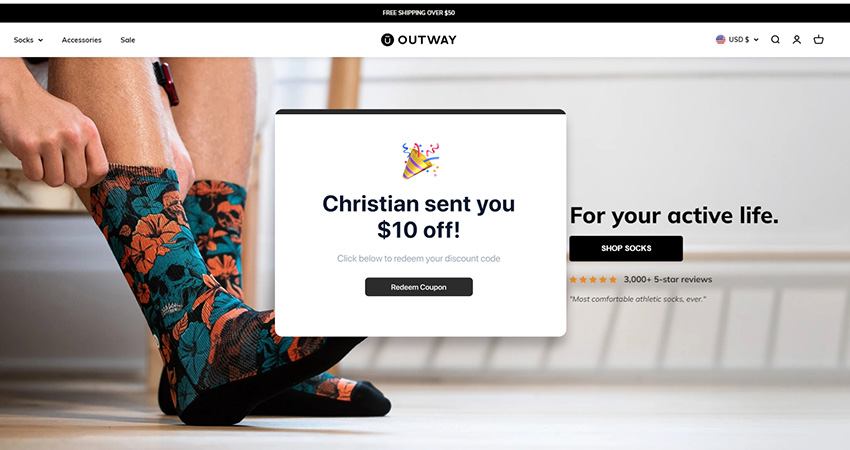The problem of coupon code leaks from influencers and creators to discount sites like Honey and RetailMeNot, leading to misattribution of commissions, is being addressed by a startup that uses one-time links much like those in password recovery to ensure credit for each sale goes to the right place.
Social Snowball was founded by 24-year-old Noah Tucker, who ran into the problem when launching his own ecommerce sites or doing consulting work in affiliate and influencer marketing for Shopify sellers. Tucker began building sites as a high school student in New Jersey, after a friend showed him how he was making more money than Tucker’s job working 13-hour shifts on a fishing boat.
The company started with a platform that automates the process of managing influencer and creator affiliates, with a focus on Shopify stores. It generates referral codes and provides a dashboard for tracking affiliate performance, payments and ROI.
Tucker said when helping merchants build their influencer and creator marketing programs, he found existing tools were designed more for old-school affiliate models that leveraged publishers, PR, media buyers or bloggers. “Everything would break,” he said. “It was very manual and clunky to onboard affiliates, send links and track sales. So, we rebuilt the traditional affiliate model.”
Safelinks, the new offering from Social Snowball, are links that generate unique single-use codes for every customer who clicks on them, which influencers can share with their followers. The OTP aspect means any leakage of the code to a popular discount site is rendered valueless and moot.
“With influencers on TikTok and Instagram, the most popular mechanism to share with their audience is coupon codes to a store,” Tucker said. “It’s an incentive to buy and encourage loyalty, but discount codes intended to attract customers often end up on popular coupon sites, causing discrepancies in affiliate attribution data and leading to incorrect commission calculations. The result is financial losses for merchants and unfair attribution for affiliates. The attribution mechanism is broken in this case.”
UTM links are another popular way to reward customers and attract new ones, Tucker said. “But if someone sees the influencer’s affiliate offer on their phone and goes to check out later with the link on a laptop, the tracking cookie is only on the first device,” he said. “So, there’s no discount, no incentive.”
Also, browser extensions from discount sites allow an affiliate code to be shared and used again and again by any visitor, way beyond the intended audience. This means the influencer gets commission credit they’re not entitled to, Tucker explained.
“The brand is losing money on the discount and on the commission to the influencer,” he said. “Eventually they check Honey and catch on that the coupon code is there, and the influencer is getting way more credit than they should. So, they say, we can’t pay the commission. They don’t know which sales are from the audience an which from the leaked code on Honey.”
If an influencer posts an affiliate link on their Instagram page, Safelinks generates a single-use coupon code for each visitor. “The customer experience isn’t impacted, they get their discount, and the influencer still has something to share that’s scalable,” Tucker said.
He said Social Snowball is a bootstrapped operation to date, with seven remote employees and 1,300 brand customers including Fanjoy, Outway and True Classic. Early on, building the initial solution took time, leaning on agencies and freelancers to develop the code. The company has since transitioned to an in-house team with a mix of full-time and part-time staff spread out from Tucker’s home base of Los Angeles to other parts of the U.S., Canada and Brazil.
“We’ve seen significant growth while operating profitably, and we’re happy to build the company that way,” Tucker said. “We still have a VC mindset, growing as fast as possible and aggressively reinvesting the profit into hires, technology and marketing to grow and scale. It gives us full control the company so we can just focus on customers and product.”

